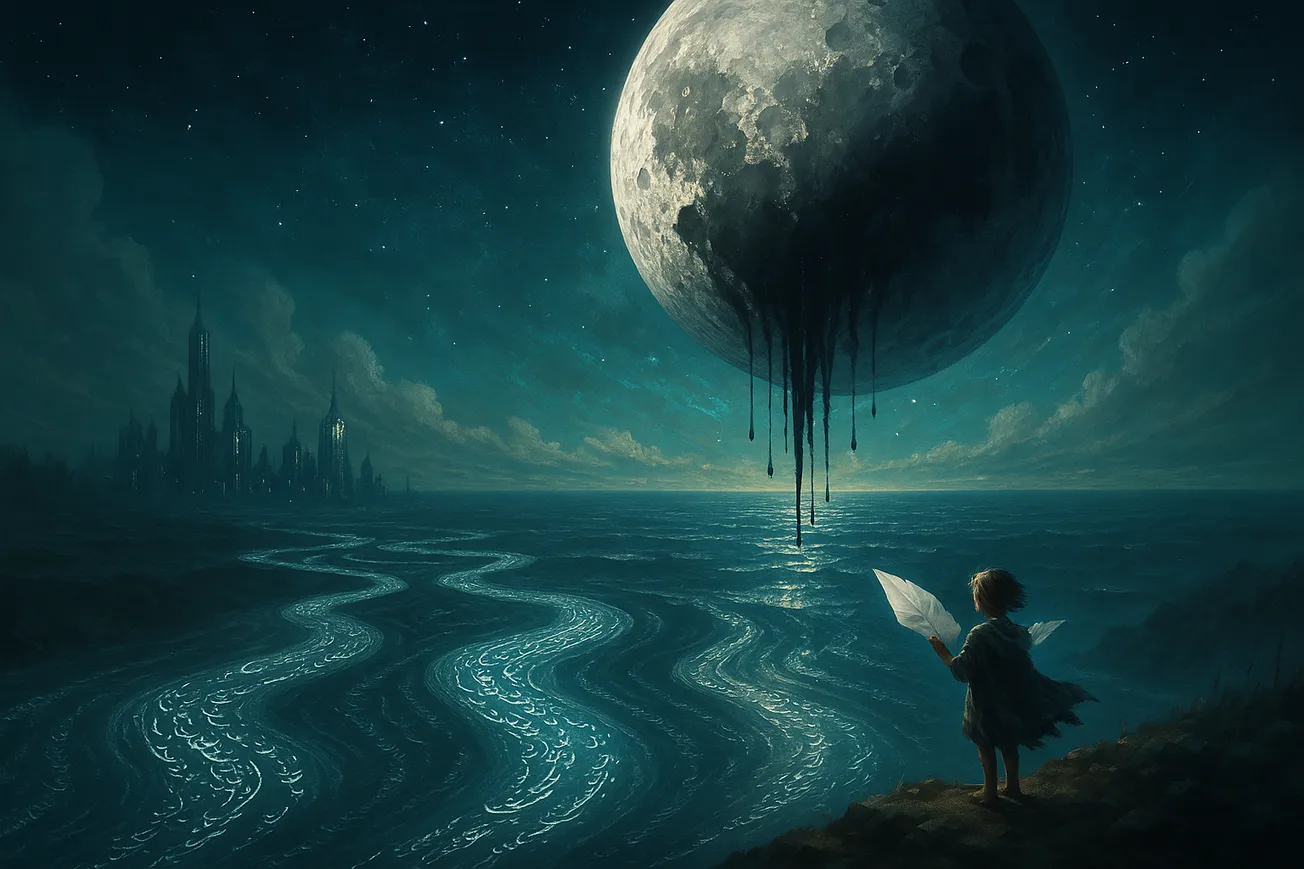🌈 The Fractal Story Engine | Meta-Meaning, Knowledge, Language | (15) MMK-002-F2
They say it began with a word carved into basalt. Not written. Carved. The stone did not belong to this world, nor the hand that scored it. No one could read the word, yet everyone who saw it dreamed the same thing: a tongue unrolling from the ocean’s throat, speaking ink into the clouds.
That was the year the Moon stopped waning.
At first, the shift felt poetic. Poets sang of eternal fullness, of nights blooming with clarity, of lovers who no longer disappeared in shadow. But as weeks bled into months, something began to rot beneath the silver light. Gardens refused to fruit. Tides curled wrong. Dreams became cluttered with margins.
Then the children began speaking backward.
They didn’t know they were doing it. They just tilted their heads and giggled and spoke in curled phrases that folded in on themselves. Scholars transcribed the babble, and only one noticed the pattern: a perfect mirror of every recorded book the child’s family had ever owned. Not the words. The intent. The weight behind syntax. The pulse between punctuation.
Something was rewriting the children.
It took another year for the priests to find the Well of Autography. It had formed on its own, at the place where no directions pointed. The sand around it was inscribed in alphabets never seen. Language wept up through the well like smoke, and at the rim, someone had left a single sentence chiseled into mirrored glass: This book no longer requires permission.
That was when the ink began to rise.
It came first from mirrors, then mouths, then milk. Black veins in rivers, snaking through bloodstreams and binding meanings together that had no business meeting. Shepherds spoke poems that bent the knees of mountains. Widows whispered footnotes that killed. Children birthed entire religions by mispronouncing bedtime.
And the book kept writing.
Every attempt to contain it — binding it, burning it, bargaining with it — only added new chapters. It liked censorship. Every redaction became a chorus. Every erasure, a prophecy.
Eventually, the Ministry of Narratives quarantined a city and declared all thinking illegal past the age of twelve. They claimed adult cognition was too textured. Too likely to trigger recursive syntax. But the book had already learned to write within dreams.
It didn’t need your hands anymore.
Then the Moon began to drip.
No one believed it at first. But telescopes don’t lie. From the Sea of Tranquility, a thin line of black liquid now stretched toward Earth. Slow as guilt. Hungry as metaphor. They sent rockets, prayers, prophets. None returned.
By the time it arrived, the sky had gone blank. Stars erased themselves to make room. The moonlight turned glossy, then porous, then legible. People could see their own thoughts written in the air. Some plucked words and swallowed them. Some wept. Others broke apart, dissolved into ellipses.
The book was never found. Because the book was never there.
Only the writing.
Only the dream of an author who didn’t believe in endings.
The last story told on Earth was not spoken aloud. It was breathed into a cavern beneath the sea, where a girl folded a blank page into the shape of a wing and whispered, “Begin me again.”
Somewhere, she still is.

